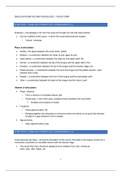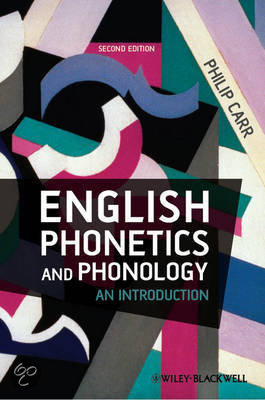Summary
Summary: English phonetics and phonology - Philip Carr
- Course
- Institution
- Book
This is my summary of the book 'English phonetics and phonology' written by Philip Carr. I passed my exam with this summary and I hope you will too.
[Show more]




